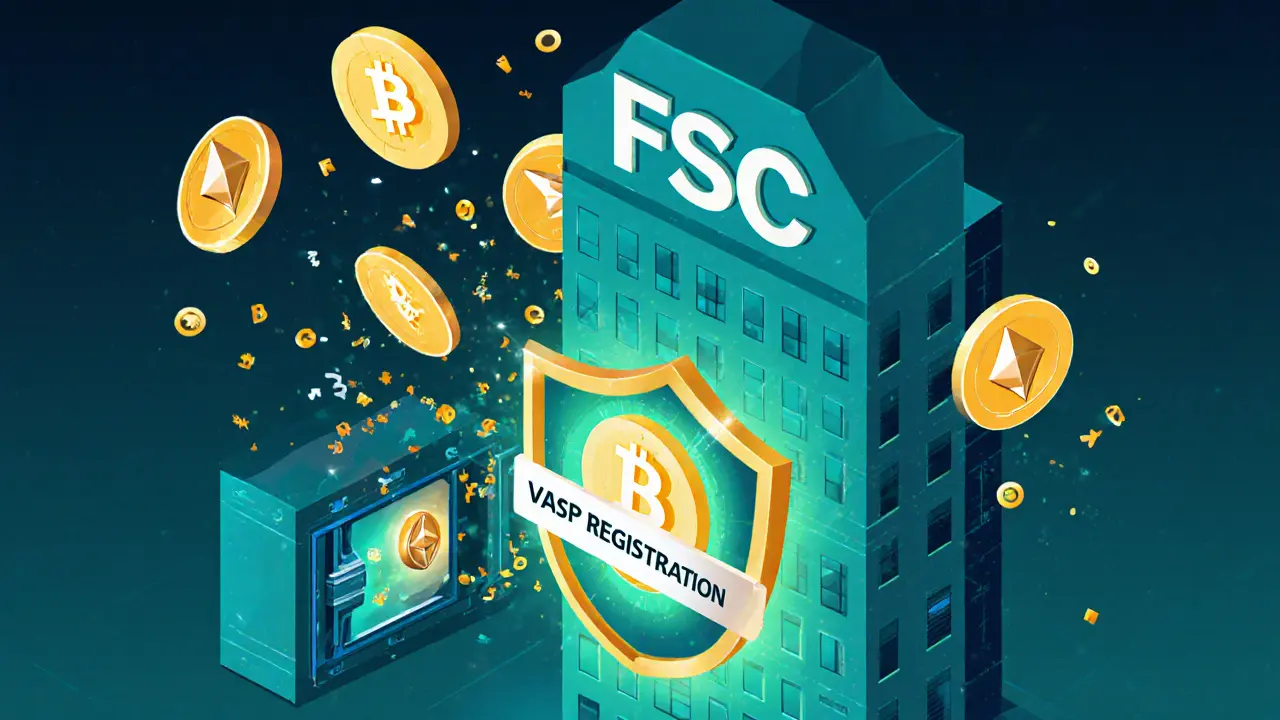VASP Registration Taiwan: What You Need to Know About Crypto Regulations
When you hear VASP registration Taiwan, a VASP (Virtual Asset Service Provider) is any business that handles crypto transactions, exchanges, or custody services in Taiwan. Also known as crypto service provider, it’s not just a formality—it’s the law. If you’re running a crypto exchange, wallet service, or even a trading bot platform in Taiwan, you need to register with the Financial Supervisory Commission (FSC) or risk fines, shutdowns, or criminal charges. This isn’t about banning crypto—it’s about control. Taiwan wants to stop money laundering, protect users, and bring transparency to a space that’s often hidden.
Why does this matter to you? If you’re a trader, you might not need to register yourself—but the exchange you use does. If that exchange isn’t registered, your funds could vanish overnight. The FSC has cracked down on unlicensed platforms, shutting down those that don’t meet AML (anti-money laundering) rules, KYC checks, or capital requirements. Registered VASPs must verify user identities, report suspicious activity, and keep detailed records. It’s not optional. The same rules apply to foreign platforms trying to serve Taiwanese users. Even if you’re using Binance or OKX from Taiwan, the platform must be registered locally to operate legally.
There’s a big difference between what’s legal and what’s popular. Many people still use unregistered exchanges because they’re easier or offer higher yields. But the FSC doesn’t care how convenient it is—they care about compliance. In 2024, Taiwan started publishing its official list of registered VASPs. If your platform isn’t on it, it’s not safe. And if you’re a developer building a crypto tool for Taiwanese users? You need to design for compliance from day one. That means KYC integration, transaction monitoring, and clear audit trails.
It’s not just about exchanges. Wallet providers, crypto ATMs, and even some DeFi interfaces fall under VASP rules if they hold or transfer assets on behalf of users. The line isn’t always clear, but the FSC has been expanding its definition. If you’re in Taiwan and handling crypto for others, you’re likely a VASP. And if you’re outside Taiwan but targeting Taiwanese customers? You’re still in scope. The FSC doesn’t care where your server is—it cares where your users are.
Below, you’ll find real cases, scams, and regulatory updates that show how VASP registration in Taiwan affects traders, platforms, and even everyday users. You’ll see how unlicensed exchanges collapsed, how users lost money, and how compliance changed the game. This isn’t theory—it’s what’s happening right now.
FSC Crypto Regulations in Taiwan for Exchanges: What You Need to Know in 2025
Taiwan's FSC requires all crypto exchanges to register, segregate assets, and follow strict AML rules. Learn the 8 key compliance requirements, penalties for non-compliance, and what's coming in 2025.
learn more